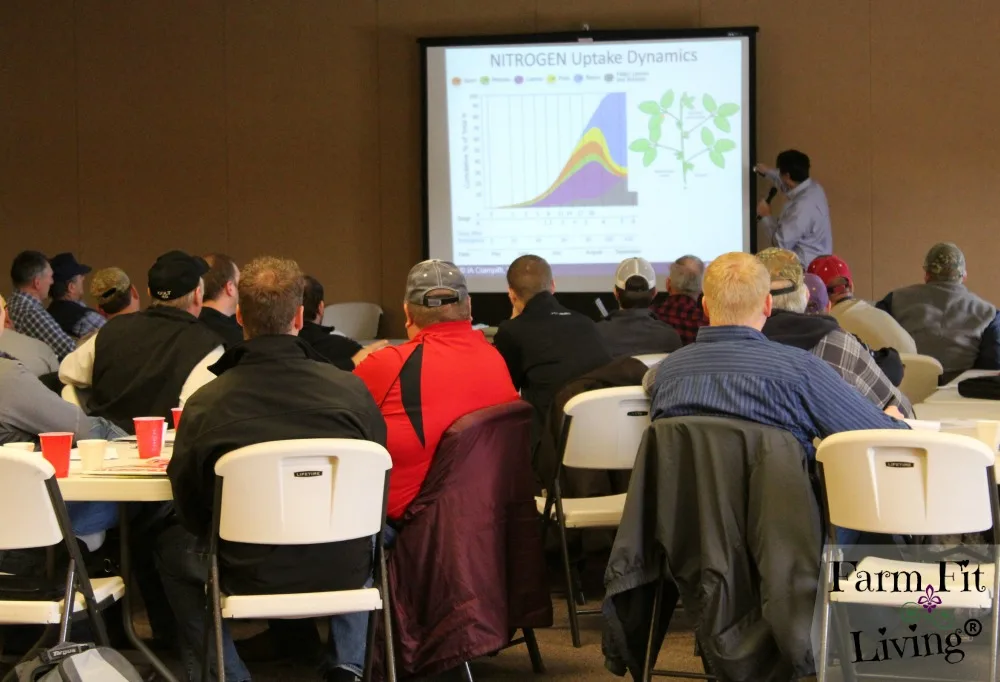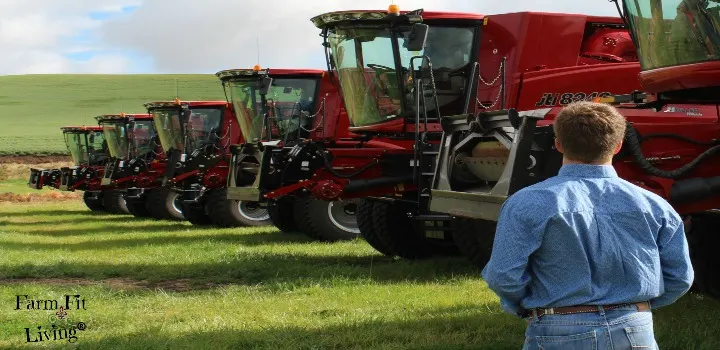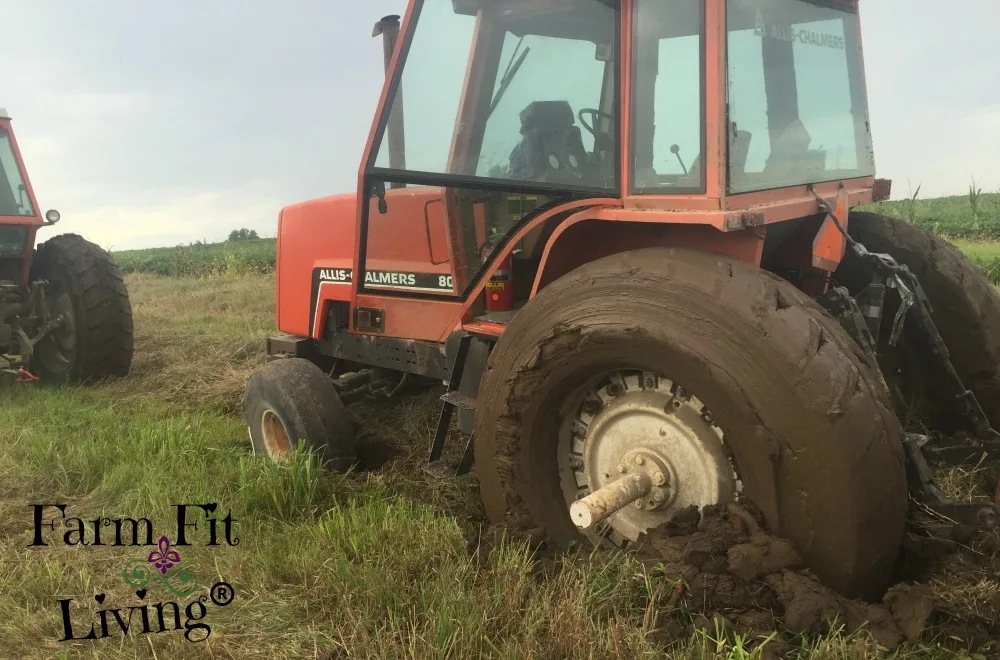Would you believe me if I told you farmers never stop learning?
Farmers never stop learning because they are faced with a new challenge every single day. Everyone must learn from their mistakes in order to find success. And there are numerous ways farmers can continue learning on and off the farm.
Here are 9 ways farmers never stop learning.
Local Seminars & Meetings
Along with the changing times comes the need for new information. Local, state, and federal agencies, agricultural companies, universities and other entities provide educational seminars that allow farmers to learn about these changes.
For example, the Veterinary Feed Directive (VFD) is a new law stating that livestock farmers and ranchers will need to work with there veterinarians to obtain certain antibiotics. This is a huge change since many of these feed antibiotics have been available over the counter.
Not anymore. These are now becoming regulated since statements of “antibiotic resistance” have been stated.
So, it is important to know options now to continue ability of purchasing antibiotic. And make a plan for it. Because some operations need these antibiotics.
For example, we give antibiotics to our pregnant does before they kid. This helps to prevent a disease called Chlamydia we have in our herd. So, it’s important that we continue this program or else all our baby goats will be born dead.
Other local seminars provide knowledge for:
- New Safe Chemicals for Weed and Insect Control
- New Production Strategies for Crops & Livestock
- Beekeeping Education
- General Livestock Management
- General Horticulture Practices
- Federal and State Programming for Farmers & Ranchers
There are many many other opportunities. And there are many ways to find out about these programs. Read on, friend.
Farmers Never Stop Learning From Other Farmers
Farmers never stop learning from their neighbors. They love to watch and see what other farmers are doing in their operations.
Whether the farmer is next door or halfway across the country, farmers can learn from other farmers. And this is why farmers need vacations: To get out of their little farm box and learn new ideas.
I traveled halfway across the country from Kansas to Washington State for my cousin’s wedding. The morning of the wedding, all of us Kansas folks were invited to participate in a farm tour of Eastern Washington. It was a truly great learning experience.
By seeing how other farmers farm, you can learn:
- Farmers work with the resources they are provided.
- There are certain reasons why farmers farm in a certain way.
- All farmers are very proud of their land and passionate about teaching others.
And this becomes very important when farmers run into non farmers. Because certain questions need to be answered with passion, truth and knowledge.
Farmers Never Stop Learning From Non Farmers
It’s amazing to learn from others who aren’t engaged in farming. Even ruralites who aren’t from a farming background can have many questions about production agriculture.
It’s good to know what non farmers are asking. This will reveal the “big topics” that the majority of the population is asking about food and product. Listening and not shoving them off or approaching a question as rude is an important way to learn about what they need in order to educate them.
Here are a few reasons farmers should never stop learning from non farmers:
- They are the customers who purchase the product.
- They may not understand how or why the product is grown.
- Non farmers that farmers talk to will be asking the same questions as many other non farmers.
So, how can farmers find questions from these non farmers who know very little about the way their food is produced? Well, the grocery story is a great way to find them. My friend and Kansas cattle rancher Debbie Lyons-Blythe stands at a meat counter in her local grocery store to connect with non farmers who are buying beef to feed their families.
It’s very important to answer non farmers’ questions about agriculture and food in a non-biased and educational way. Not only that, but in a gentle and elementary way. They only want to learn from farmers. But first, you should learn from them.
Also, these non farmers are on social media. Note that there is a lot of anti-ag things posted on social media. It’s very important farmers never stop learning or watching out for these because they are the questions the non farmers will be asking.
Social Media
The fastest source of new information comes from social media. Facebook, Twitter, Instagram and even Pinterest can espouse new ideas that farmers can implement into their own operations.
Both the goods and the bads are posted on social media in a way of text posts, pictures and videos.
A few things farmers can gain from social media:
- Yield results and weather from other parts of the country and world.
- New production tips and strategies other farmers are doing.
- Information about programs and educational seminars.
- What anti-ag propaganda is being posted?
The internet technology has allowed farmers to become educated in the ways of the world. But social media is not the only form of online education in real time. Farmers can now engage in online courses to further their education.
Online Courses
Many universities are offering online courses in agriculture to allow farmers and future farmers to obtain hours towards their Associate or Bachelor of Science degrees. This is huge for farmers who desire to work on the side to supplement income to their farm.
I mean, huge. Because now, farmers do not necessarily have to leave the farm to attend classes. Especially if the farm is far away from the university or college of choice.
Here’s a few things you need to know to be able to obtain an online degree:
- You’ll need to have someone lined up to proctor exams for you.
- These courses are work at your own pace. But you need to be disciplined enough to not leave things to the last minute.
- Make sure you set aside time to study and enough time for exams.
- You might have to make a trip to campus. Make sure you understand all the terms and conditions of your online program.
And these programs might not be for a degree, but for a label. For example, I am BQA certified. I also have my Masters of Beef Advocacy degree that I obtained online. I’m a Meat Goat Certified Producer, which allows me to include the logo with every advertisement and product I sell.
While you might not be looking for time in front of a classroom, here are some more non traditional learning settings.
Farmers Never Stop Learning From Industry Involvement & Opportunities
Who wants to be involved these days? Well, I will tell you there is much to learn and gain from becoming involved in the agricultural industry.
- Networking
- Travel
- Personal & Professional Development
There are numerous ways to become involved. Locally, you could be involved in a livestock board, Farm Bureau or a county Extension program board. From here, there are ways to become involved at the state level as well as nationally.
Becoming involved in Kansas Farm Bureau has allowed us to travel off the farm to other parts of the state. We’ve also traveled to Kansas City and Phoenix for National Conferences, allowing us to associate and learn with farmers from other states.
Livestock shows are also a great way to learn. Livestock ranchers and farmers never stop learning from vendors and great looking livestock that is exhibited there.
So, if you like to travel, this would be a great option for you. If you don’t, you might appreciate reading about opportunities in things like magazines.
Magazines & News Columns
Every sector in the agricultural industry has a magazine. And many rural communities produce newspapers that feature agricultural information inside.
By reading industry magazines and newspapers, farmers never stop learning about new technologies. Because they are all inside of those magazines.
Magazines and news columns may also include print advertisements and coupons to local farm shows – Also an exciting event for learning new things.
Radio Shows & Podcasts
So, it may seem that radio shows are a thing of the past. However, rural America still loves it’s local radio and farm reports.
Yes, on the radio, you can hear about things like:
- Farm Reports
- Ag News
- Ag Programs
- Rural Communities & Fun Activities
- Who had cattle out the other day.
But, I want to introduce you to the new age of Podcasting. This is internet radio. You can stream it live or listen later. And I think it is a wonderful thing.
In fact, I love podcasts so much that I have made the decision to start my own. I will be starting a podcast in January for rural women called “Rural Women Inspired.” A podcast for rural women with real stories of inspiration for farm, garden, cooking, balance, travel, family, business and so much more.
I want to invite you to the new age. If you aren’t familiar with podcasts, go to Stitcher and take a listen.
Trial & Error
Finally, the way most farmers learn is by trial and error. Farmers get new ideas to try if they think they could possibly make it work for their farm business.
Here’s how the risk really works.
- Farmers learn about a new idea from neighbors, educational seminar or social media.
- They explore the basics of said new idea: Cost, implementation, how much work it will be, etc.
- Farmers decide whether or not to implement the new idea. If not, it gets shoved under the run. But if so…..
- The new idea is implemented and studied.
- The end of the growing year is the big test. Either the new idea worked or it didn’t. How well did it work? Was it all worth the cost and time? What barriers was in the way of success? Was money made?
If the new idea worked, then the farmer will need to decide whether or not to do it again next year. But if it did not work, scrap it. This is trial and error.
You try something. It either works or it doesn’t. And you learn from the errors. Trial and error could make or break you. It’s the best way to learn something new.
And this is how farmers never stop learning. By trial and error, they are able to grow or have another setback to work through. This bring forward more and more challenges every day to all different types of farmers in the world.
Specifically, to the next generation of farmers who are just trying to find their way doing what they love.
Challenge To Women Farmers
Fellow ladies. We are said to be minorities in agriculture according to the Ag Census. However, there were around 100 ladies involved in agriculture at the last local Women in Ag event I attended.
That makes me hopeful for our future in Agricultural fields. It tells me that we are becoming more involved in the day to day operations of farming. Not just staying in the kitchen or shopping in town.
Sidenote: Personally, I despise shopping (unless it’s bull shopping). I’d much rather run the combine. Or work in my garden.
But, you might think it’s hard to be a woman farmer in this world.
- Find social media groups to share struggles and triumphs with. One of my favorite Facebook groups is the Wholehearted Rural Sisters Community.
- Learn all you can.
- Stay positive.
- Don’t Ever Quit. I counted a total of 12 tries before I finally backed the truck to hook up the livestock trailer. Believe in yourself.
That is the number one challenge I have for you. Believe in yourself. You are the hardest on yourself. If you want to be a farmer, then be one. Don’t let your struggles determine your fate. Especially if you’re younger. You have a lot of years ahead of you to farm. And it’s only just begun.
Challenge To Younger Farmers
If you’re 35 years old or younger, you’re a young farmer or rancher. So, listen up.
You’re the next generation. And the world is a different place than it was even 20 years ago. It’s going to continue to change dramatically given the population challenges facing the world. Therefore, you should:
- Look at the history books.
- Pay attention to the rise & fall of the markets. Never chase markets.
- Attend educational events.
- Listen to your “old timers” who try to tell you you’re wrong all the time.
- Learn how to be a business person.
You will be faced with hard times and great times. You’ll want to make sure you are always thinking about both when you make your decisions. Have a good relationship with your bankers, Extension Agents, Crop Insurance Rep, Health Insurance Rep, loan lender and neighbor.
And it’s also important to connect with the older generation. They have much to teach you about your future in agriculture.
Challenge To Older Farmers
Hello, old timer. You are part of the majority of farmers in this great country today. Since the average age of the farmer is 56 years old. You may or may not be thinking about how your farming business will change in the future.
Let me tell you that you are not too old to learn a few things. Because farmers never stop learning. Don’t even try to tell me you’re too old.
Even though you might be aging out, you are so valuable. Because you are the ones who will teach the younger farmers the history. They are looking to you for advice but also wanting to apply some things they are learning. Listen to them.
Along with listening, you must also learn to let go of some old traditions that just aren’t working. This is part of the learning and success process. I advised the younger farmers to look at records. They will be coming to you with ways to change to become more profitable. Be a little bit more open to change.
And, you are still making every decision there is to make. You are still the boss. Are you applying your leadership skills to your next generation? What are they learning from you that will help them succeed when you can’t be out there with them on the farm anymore?
So, I know these are some deep thoughts for you. And here’s my suggestion.
From here on out, I challenge you to work with your younger generation. Come together with them and allow them to make some decisions. Advise them…don’t tell them. The future of agriculture depends on the connection between the old ways and the new ways. It’s time to merge the two of you together.
Coming Together
The most important challenge farmers face is coming together. This should not be a challenge, folks. But it seems to be.
Small farmers, large corporate family farms, women farmers, mommy farmers, organic farmers, vegetable farmers, livestock farmers, etc. The list is endless. And all sectors are so different.
But there is one similarity between us: We are all feeding the world in some way. Small scale farmers feed the community through farmers markets, food banks, small local shops and their families. Large scale farmers distribute their product to parts of the world. And those in between – There is a place for ALL of us in agriculture.
So, we need to come together and support each other. We need to continue to learn from each other no matter how different we are.
Never Stop Learning
Times are always changing. For that reason, farmers never stop learning. And they never will They must continue to learn until they are no longer on this earth to learn.
The biggest challenges facing farmers today is growing enough food to feed the population locally, statewide, nationally and even worldly. Learning all we can about the new technologies, strategies, environment and customers will help us to produce even better products.
Therefore, we all need come together and learn from one another to provide the knowledge needed to feed the growing world.
~ Much Love ~






How to Bottle Feed a Lamb Successfully | Farm Fit Living
Monday 12th of March 2018
[…] of raising hair sheep. It’s not always roses and butterflies when it comes to homesteading, farming or […]
50+ Best Facts about Agriculture Web Sites and Resources | Farm Fit Living
Sunday 19th of March 2017
[…] including myself, are learning each and every day how to do more with less. There are plenty of agriculture courses and new learning about different types of agricultural […]
Honey Bee Management Plan for Spring | Farm Fit Living
Tuesday 14th of March 2017
[…] Finally, learning new techniques […]
Margaret Heaton
Friday 11th of November 2016
This article is right on! You have to be experienced in the field to know all this. As a newbie to the Texas hill country, I'm learning.
Mindy Young @ Farm Fit Living
Thursday 24th of November 2016
Great, Margaret!! If you ever have a specific question, please don't hesitate to contact me. I'm here to help.
Sarah Jean
Thursday 10th of November 2016
I would believe you! I've always had a deep appreciation for farmer (and how to own a mini farm someday) :)
Mindy Young @ Farm Fit Living
Thursday 24th of November 2016
I hope you get to meet your dream. Never stop learning or working towards your goals.